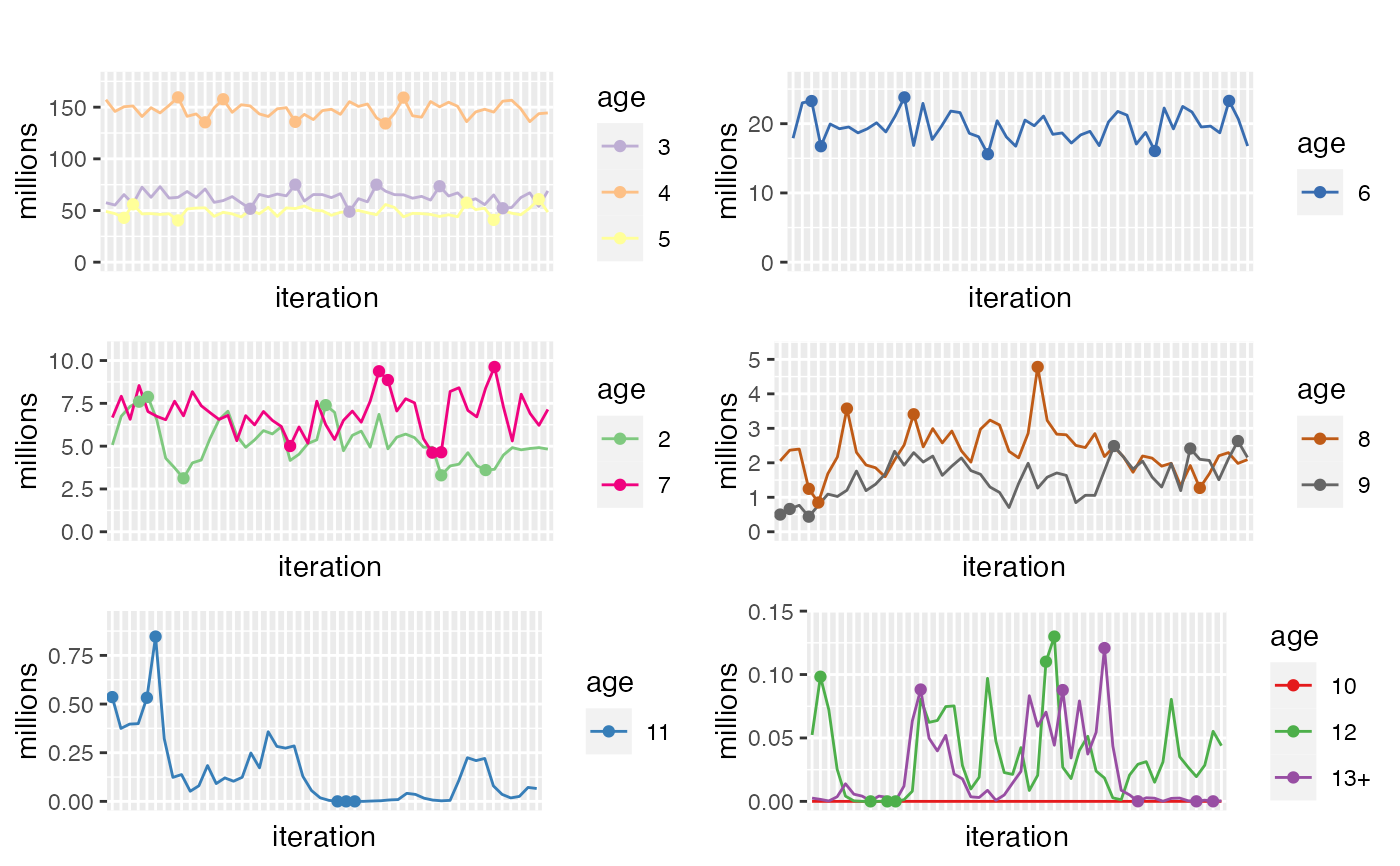Plots a paneled plot with traces for age groups. That is the value for total catch at age in each iteration of eca.predict
Usage
plotAgeTraces(
prediction,
unit = "millions",
plusGroup = NULL,
nclust = 4,
iter.max = 20,
nstart = 10,
agecolors = NULL,
lowerquant = 0.05,
upperquant = 0.95,
catlimit = 8,
title = ""
)Arguments
- prediction
as returned by
eca.predictorrunRECA.- unit
unit of traced estimates. See details.
- plusGroup
Fish this age or older will be grouped in one trace.
- nclust
the number of plots to distribute the ages and plus group on
- iter.max
maximal number of iterations for k-means clustering deciding which ages are plotted in same plot.
- nstart
the number of random sets chosen for the k-means clustering
- agecolors
named vector matching ages to colors, if null a default color scheme is used
- lowerquant
lower quantile in each age group to plot as points
- upperquant
upper quantile in each age group to plot as points
- catlimit
the upper limit for number of ages in a plot using categorical coloring. Plots with more than this number of ages will use a gradient coloring scheme
- title
main title for plot
Details
The number of iterations of eca.predict
is determined by the parameter 'nSamples' to eca.estimate or runRECA
and the parameter 'caa.burnin' (different from parameter 'burnin') to eca.predict or runRECA
parameter 'unit' supports:
- number
Catch at age as number of fish
- thousands
Catch at age as number of fish in thousands
- millions
Catch at age as number of fish in millions
- kg
Catch at age as mass in kilogrammes
- T
Catch at age as mass in tons
- kT
Catch at age as mass in kilotonnes
In order to trade off readability of plots with the number of panels needed. the traces are clustered with a simple clustering algorithm and grouped in the same plots accordingly. Adjust clustering parameters, to get fewer or more plots.
Examples
data(recaPrediction)
plotAgeTraces(recaPrediction, plusGroup=13, nclust = 6)
#> Warning: `aes_()` was deprecated in ggplot2 3.0.0.
#> ℹ Please use tidy evaluation idioms with `aes()`
#> ℹ The deprecated feature was likely used in the RstoxFDA package.
#> Please report the issue at <https://github.com/StoXProject/RstoxFDA/issues>.
